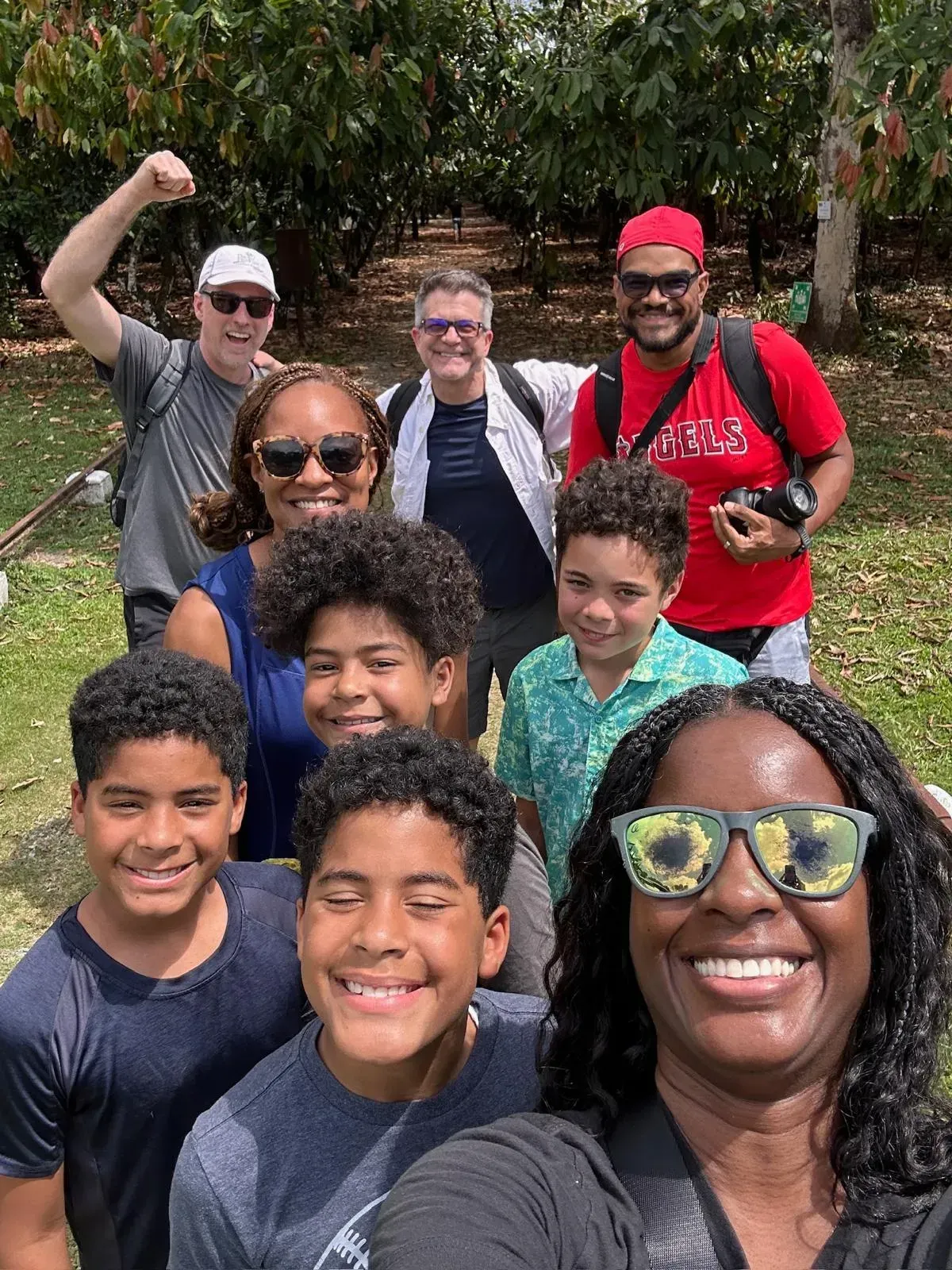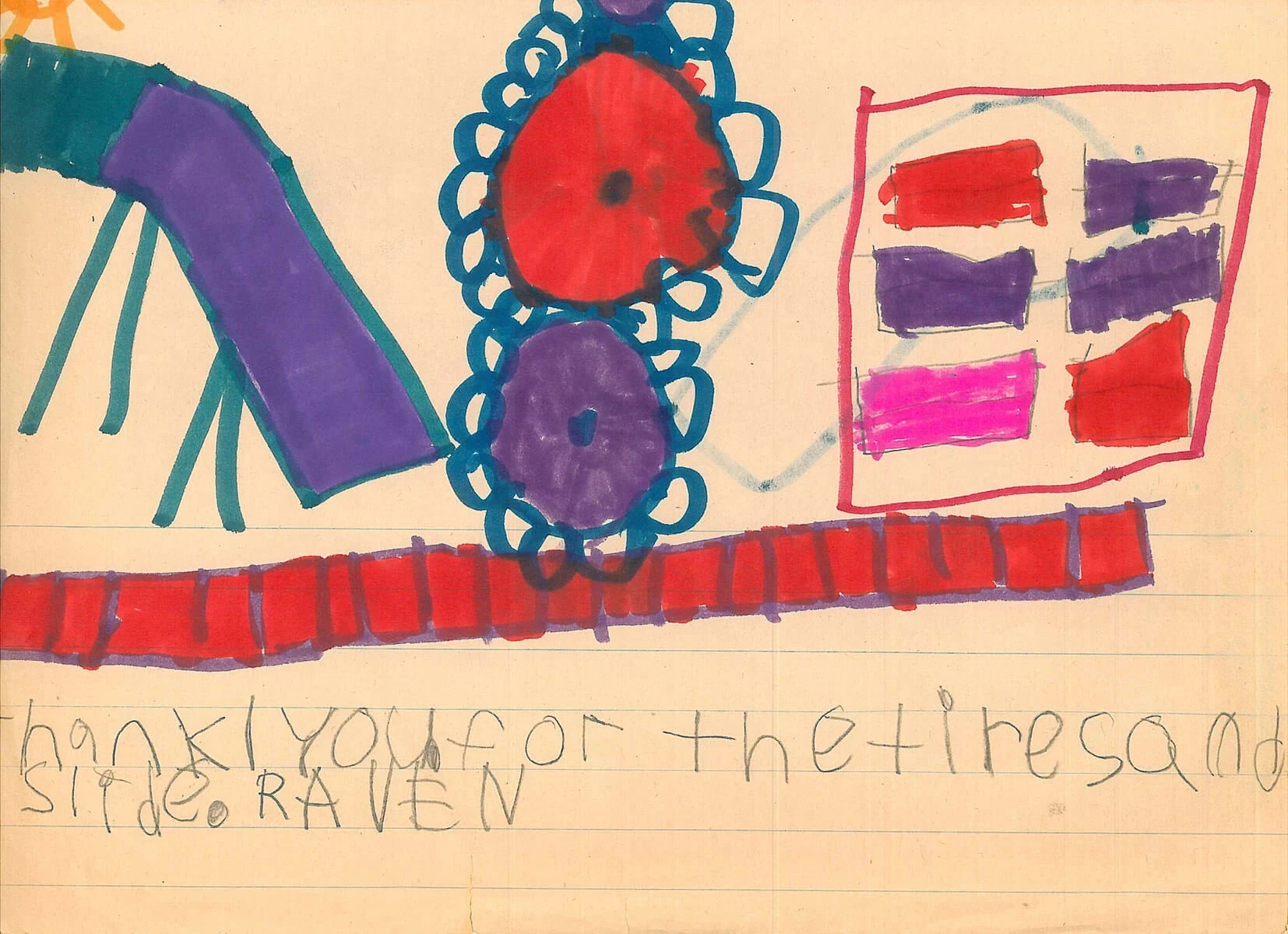By Katherine Dayton, Executive Director
Perhaps you read The Terrible Costs of a Phone-Based Childhood (Atlantic), saw How Cell Phones are Killing Our Kids & What We Can Do About It (CNN), or read Jonathan Haidt’s book, The Anxious Generation: How the Great Rewiring of Childhood Is Causing an Epidemic of Mental Illness. Regardless, you’ve no doubt experienced the screen-driven degradation of quality of life in some way.
We noticed a shift in parents’ outlook on tech a few years ago. The yearning to be in touch with kids became outweighed by the desire to give them a break from screens. It’s been a relief, as we feel strongly that tech-free is the only way to truly achieve our goal of providing a transformative experience.
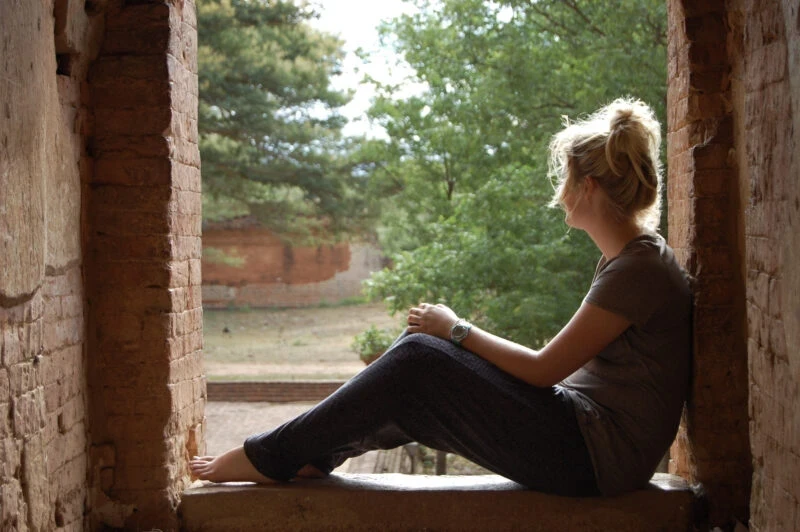
We aim to change some of the ways that each participant thinks about themselves and their place in the world. Like a pebble dropped into still water, the effects ripple outward—an increased sense of purpose, long-term fulfillment, independent thinking and connection to the world. Here, kids fully engage, discover who they are, and step into a rare, screen-free world that feels both timeless and essential.
The best part is that teens are on board. Their relief at stepping away from the pressures of screens is palpable. It’s like the sun comes out. They share their feelings about this during group meetings and in post-program evaluations.
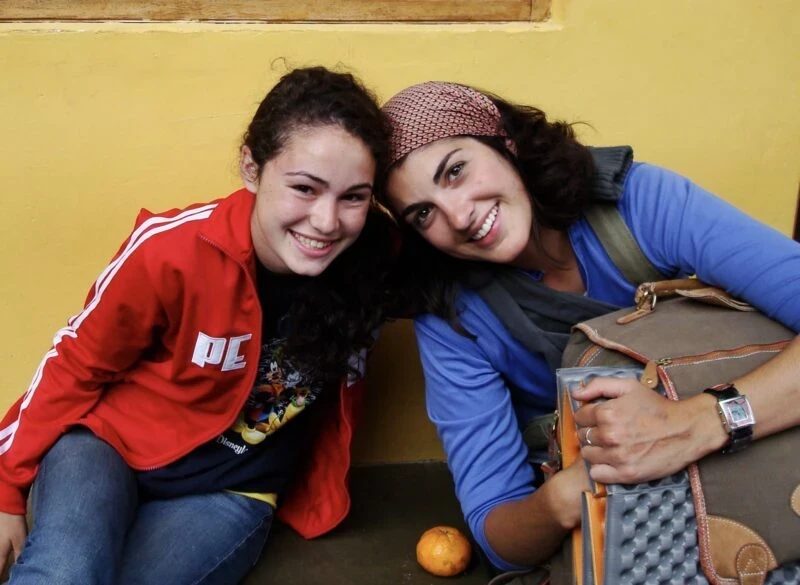
It Takes a Village
Parents and educators can be a powerful village. Unfortunately, social media and whatever else is on the screen has also become a dominant member of that village, promoting addiction, harming mental health, distorting reality and encouraging constant comparison of oneself to others.
For us, it would be a shame to provide high quality summer programs that compete with screens. Kids’ attention would be divided. Leaders would have to manage issues or drama unrelated to the program. In short, it would provide less of an experience than what we feel is important for teens’ growth and development.
VISIONS is an important part of kids’ lives and the “village member” that many families have been looking for.
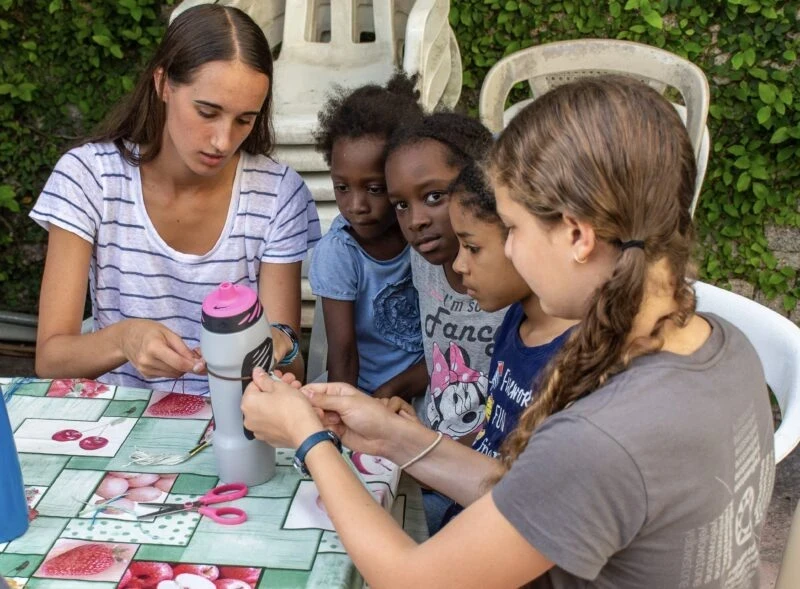
What Does Tech-Free Mean?
For VISIONS, it means kids make a quick call home when picked up by leaders at the airport, and then turn in devices until returning to the airport on the last day. It also ensures that our leaders are focused on the kids instead of providing regular blog articles or fielding phone calls that aren’t program related.
VISIONS:
- No Devices, Anytime = Tech Free
Many Alternative Programs:
- Phones Only at Nighttime or Breaks ≠ Tech Free
- Having Participants Collectively Agree on Phone Policy ≠ Tech Free
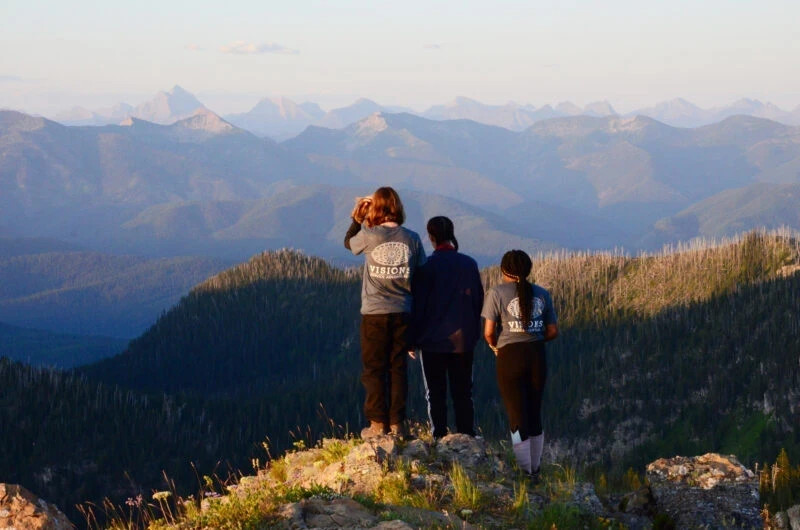
Comments From Teens and Parents
“My VISIONS experience was the opposite of what I was expecting, for all the right reasons. I’ve never been so comfortable with a group of people. I’ve never been happier and worry free in my life. Being away from technology and being cut off from the rest of the world can sound horrible when I describe it to my friends at home, but I wouldn’t have wanted it any other way.”
“The lack of phones seemed like it would be challenging, but it made my trip much more enjoyable and allowed me to get to know everyone better.”
“Thank you for providing a clean air, free of technology, free of judgment summer for my daughter.”
“Mine is a different child. It is like she grew 10 years. The degree of confidence she is exhibiting is unbelievable. Her insight is remarkable. I could not thank you enough for this chance and I can’t be thankful enough for the departure from her ex dear phone!”
“We had hoped for a few things to happen through this experience:
1) greater independence — for Katie to step outside of her comfort zone and challenge herself
2) better understanding of others and her relationship to the world around her
3) distance from cell phones and chance to connect with people and place personally.
VISIONS helped her to accomplish all three. She developed friendships on a deeper level, she learned a great deal about Native American culture, she overcame several fears and returned home more confident, mature, and thoughtful.”
See more we’ve written about screen-free summers: Top Ten Ways to Live Without Technology.



